
Deanie Chen on finding herself through music

From shooting at small venues in Kansas to touring with artists like Lawrence, Holly Humberstone, and MAX, music photographer Deanie Chen shares how her love for music has shaped her career and who she is today. Deanie chats early influences, the joys and challenges of life on tour, and the importance of kindness and professionalism in the music industry.
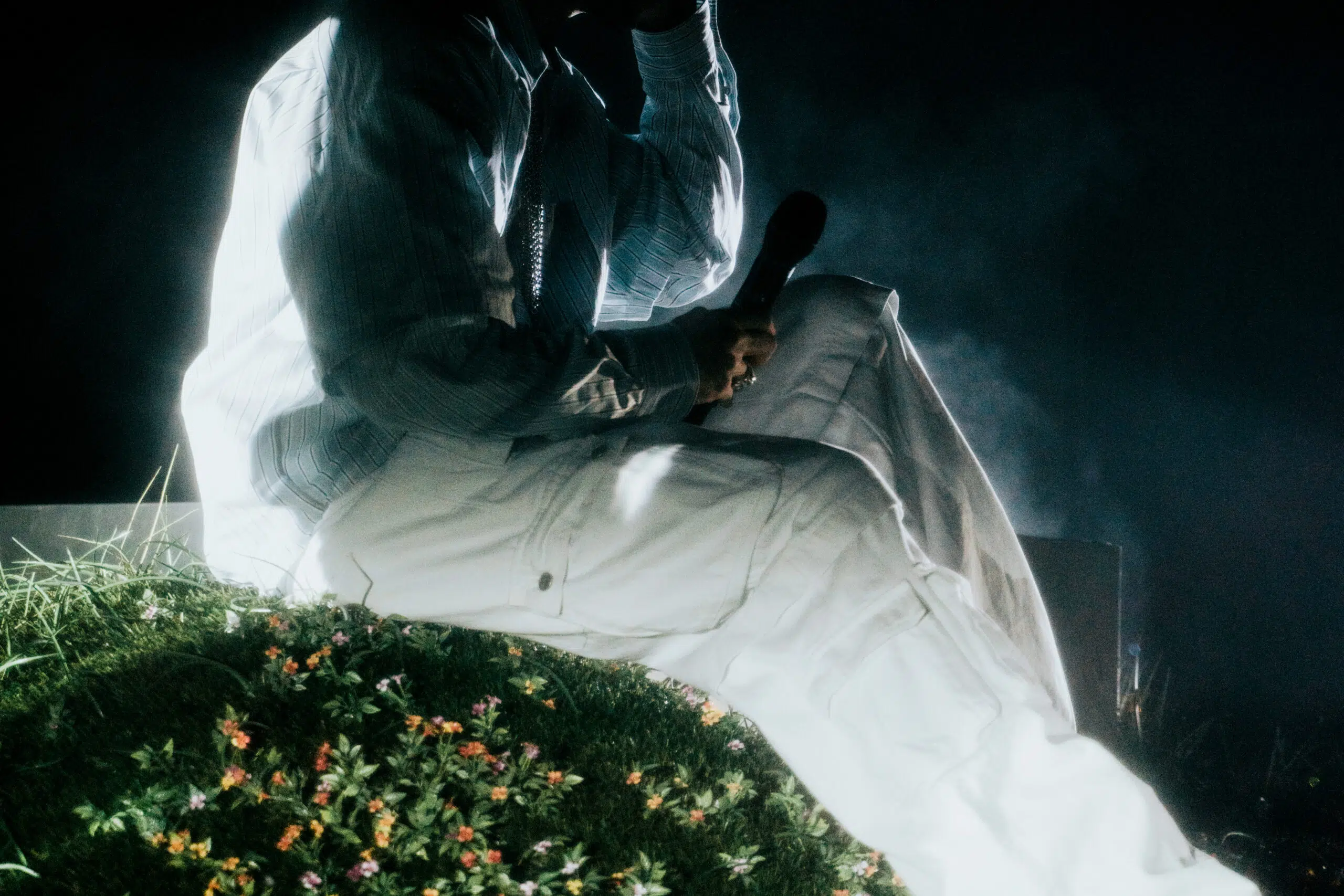
Jeremy Zucker
To start off, can you tell us a little bit about yourself?
I’m Deanie. I’m a music photographer and recent law graduate, which is kind of an unusual path. I focus a lot on live music coverage, touring, and editorial work, but usually centered around music. I grew up a huge music fan, and music was a huge part of becoming who I am and finding who I was. It’s one of my greatest passions and being able to work in that world has been just really wonderful. It’s the most passionate about anything I’ve ever been.
Who were some of the artists you listened to growing up?
My parents didn’t really listen to music, so the most pop music — or anything that wasn’t classical and jazz — playing in our house was Celine Dion. My parents loved Celine Dion, which is honestly taste, but I found my own taste when I started listening to Muse, Radiohead, and a lot of indie music. Discovering rock and indie music really opened a lot of doors for me.
I definitely relate. I remember as a kid, my dad would listen to a lot of classical music, but that was pretty much it, so I didn’t really develop my own taste in music until high school.
I also found mine pretty late. I listened to a lot of radio stuff when I was in elementary and middle school. I don’t know how old you are, but I grew up when we were still buying songs on iTunes, and I would beg my parents for iTunes gift cards so I could buy songs.
I think the only album I ever bought off iTunes was 1989 when it first came out because it wasn’t on Spotify yet.
I remember the first album I ever bought — which is kind of a flex — was The Fame by Lady Gaga, which is still an incredible album. I remember those days. I listened to the same albums again and again and again. There was no access to streaming so you had to watch YouTube videos.
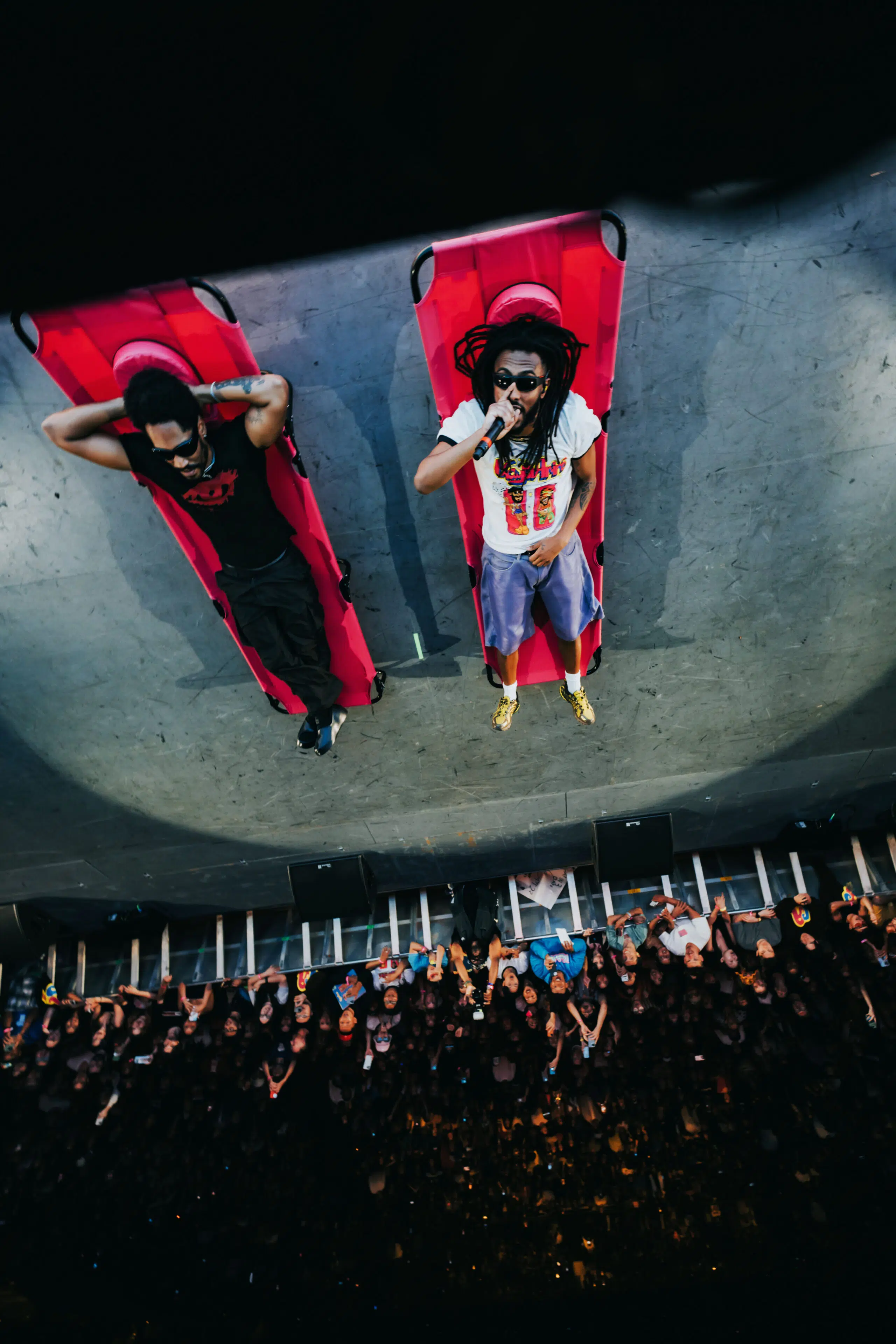
KAYTRAMINÉ
How did you get started with concert photography, and what has your journey been like so far?
First of all, I never thought it was going to be a career. I never thought I’d be on tour. That didn’t even seem like a job. I grew up in the suburbs of Kansas, and music photography wasn’t really a thing. I learned about it through Matty Vogel, who is an amazing, iconic music photographer. He’s Billie’s main photographer now, but back then he was touring with Jared Leto’s band, and he had a music blog about how to get started in music photography. I remember reading that, and I would go to really small venues that didn’t have camera rules and bring my camera. My first show was a COIN show at a place called the recordBar in Kansas City. I brought my camera and shot it from the crowd. I did a couple shows like that, slowly built a portfolio, and started working for a really small Kansas City based music publication. I would send emails to bands I wanted to see and photograph, and it kind of snowballed from there.
When I lived in LA for college, there were so many more venues and local musicians, so I started working with a lot of local musicians as well. It’s a lot of luck and meeting random people that happened to click with you, or people who decided to take a chance on you. I’ve been very lucky, but the first three years I shot, I never made a single penny. At that point, I was just having so much fun. I knew I liked live music, and I wanted to make art in some way related to that. I ended up loving it and got really lucky that it became even feasible that I could make it a job.
That’s really cool. I kind of started the same way. I was in the Bay Area, and venues were stricter about people bringing cameras, so I would email management asking for a photo pass instead.
I totally did that, too. The first band where I cold emailed management and they took a chance on me was X Ambassadors. Their manager said yeah, you can shoot the Kansas City show. That band is still so special to me. I’ll shoot them whenever they’re in town. Those bands are like milestones for me, and will forever hold a deep place in my heart.
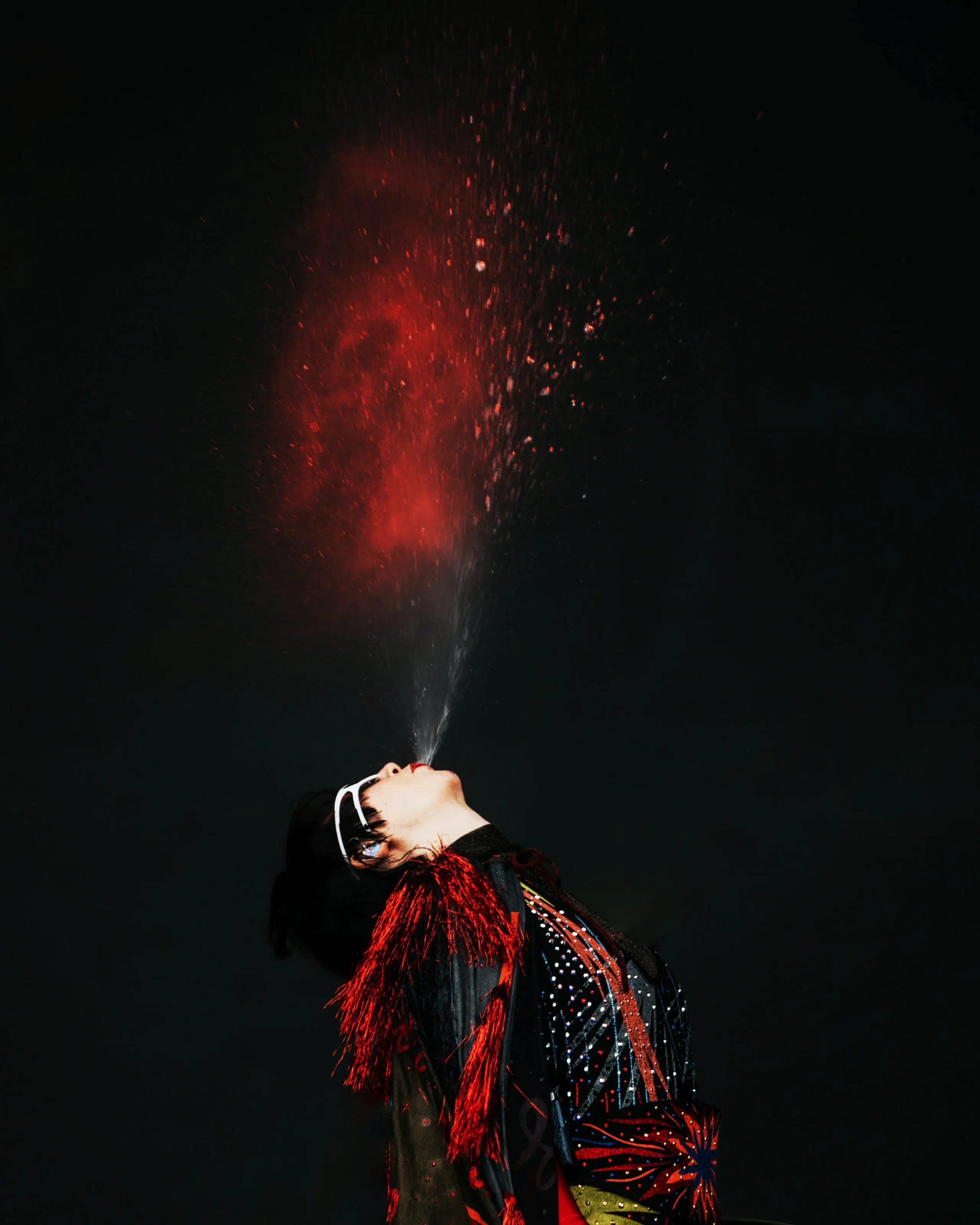
Yeah Yeah Yeahs
How would you describe your style or approach to photography?
I wouldn’t really say I have a particular style. If you look through the years, my stuff is changing all the time. I’m constantly exposed to new inspiration and new styles I want to try out. I really try to internalize the aesthetic and the energy of the artist when I’m editing. I like things to be dreamy in a way that conveys how I felt when I saw the show. Something that I always take into account is the artist and their style and their type of music, and that always helps me curate how I’m going to edit every set. I don’t use presets, because each set I do is so different. I’ll spend a long time editing one picture from the set and use that as a base to copy over to the others. I want to start every set with a blank slate, so that I can really see what would fit that particular situation, that lighting, and that artist’s vibe.
What advice do you have for people who are looking to get into concert photography?
Don’t forget the reason you started doing it. It can be very soul sucking once you’re in it, but remember why you did it. The reason I do it is not because it’s really glamorous or I’m making a shit ton of money — because neither are true — but I do it because I love it. I love being in the music scene, I love being in the room, and I love getting to create with artists that I respect. Not forgetting that is really important.
At its core, the music industry is a really big relationship based industry. Being really kind and really professional can go really far. Your talent can speak for a lot, but for tours — talking to so many people I’ve known — talent is 50% of it. The other 50% is if you’re a cool hang and if you get along with the artist because you’re spending 24/7 with them. For months on the road, you’re in these tiny rooms. I feel like the greatest test of friendship is traveling together or rooming together. You have best friends that you’ve probably never lived with or traveled with. Touring is literally both. Being a person that they want to hang out with is just as important as your skill as a photographer or videographer. Being a good person and genuinely being kind is such a great asset in the industry, in addition to whatever you make art wise.
I can definitely see that. Now that I’m in LA, I’ve noticed that most of the jobs I book aren’t from cold emailing, but from other photographers or people I’ve met.
A lot of times, it’s a lot of moving parts, and the last thing you want is someone who is going to make things more complicated or make people uncomfortable or add more work to people’s plates. Music is hectic, and everyone is stressed, so we want to make one less thing stressful. Most of my jobs have been referrals from people who know me, which I think is also really cool. Sometimes it can feel very competitive, but befriend other photographers. It’s such a unique situation to be in, and our woes and rants are very unique to us. Having friends that you can refer for gigs and talk with is really important to stay sane in this industry. Don’t be threatened by other photographers. There are a lot of gigs. We’re all just trying to make our art and get hired. The group of friends I have are my lifeline. They’re so special to me. They’re friends beyond photography, and having that support system has really helped me stay grounded in all of this.
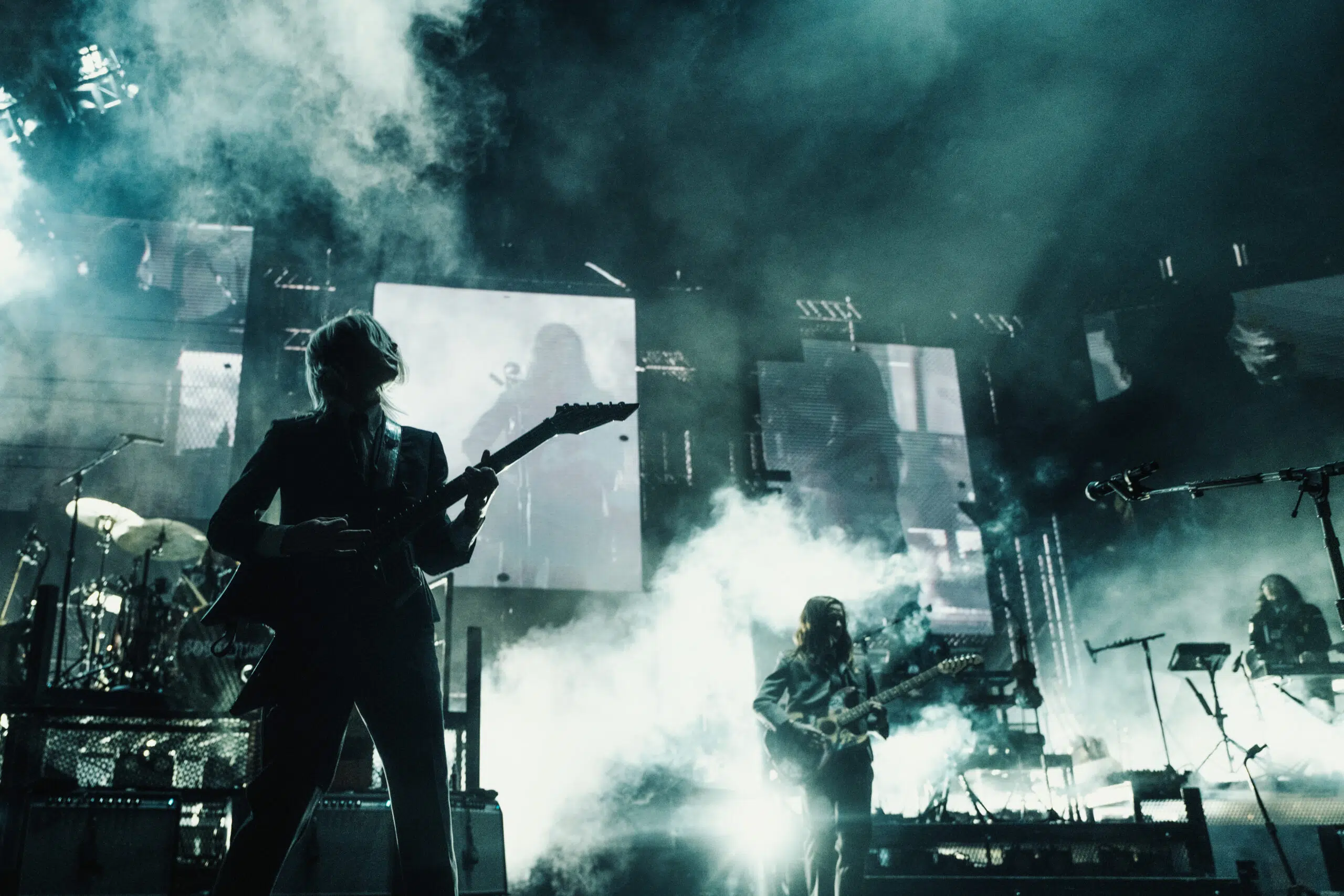
boygenius
We touched on this a little bit earlier, but what has been one of the most rewarding aspects of concert photography for you?
I really think it’s the people I’ve met and the friends I’ve made. I’m such a people centric person, so that has been the biggest part. I’ve met some of my best friends through photography. I went to undergrad and grad school for things unrelated to art and in fields I wasn’t particularly that interested in, so there was a level of disconnect. It’s not that you can’t be friends with people who aren’t interested in the same thing, but doing photography has given me an outlet to meet people who are really passionate about the same things that I am. We all are working towards our own goals in this field. It’s really cool to have friends I would have never met otherwise.
Photography has really helped me find who I am. I’ve always been really lost. I’ve never really had a deep passion for anything. I was the kid who was pretty good at school and wanted to make her parents happy. When I was living in Kansas, I was one of five Asian kids in a class of 600, so I never really had an identity and kind of always lived for other people. Once I started doing photography, that was the first time in my life I ever had something that I was doing for myself. Instead of living for other people and living to make my parents and my friends happy, this was the first thing I did that made living really worth it to me. It sounds really dramatic, but it was the first time in my life I felt deeply passionate about something. Aside from the people that I’ve met, that has been really crucial to me — finding confidence in myself and finding who I was.
You’re on tour now with Lawrence, what has that been like so far?
It’s been great. It’s been eight days now, so a little over a week. It’s been lovely. I’ve been working with this band for a couple of years now, so they’re already family. I’m really, really close to them. It’s been really cool. These are the biggest venues I’ve ever shot at. We’re doing Yankee Stadium, Wrigley Field, crazy sized venues, which is definitely a big adjustment in how you think about shooting. It’s a good two minute walk from the stage to the pit, so I have to plan. Other than that, it’s really good. I’m really happy to be back on the road. Touring is very much you either love it or you hate it, and I really love it. Getting back in the groove of things has been really fun.
That’s so good to hear. What has been one of your favorite memories or moments from tour so far?
We did two nights at Yankee Stadium to open, and that was really, really cool. The whole band is based in New York, so it was a big family moment. Everyone was really, really excited and kind of nervous for this tour, and just getting those shows done was a huge accomplishment under everyone’s belt. It was very surreal. Seeing and meeting everyone’s family was also really, really cool, and I loved doing that.
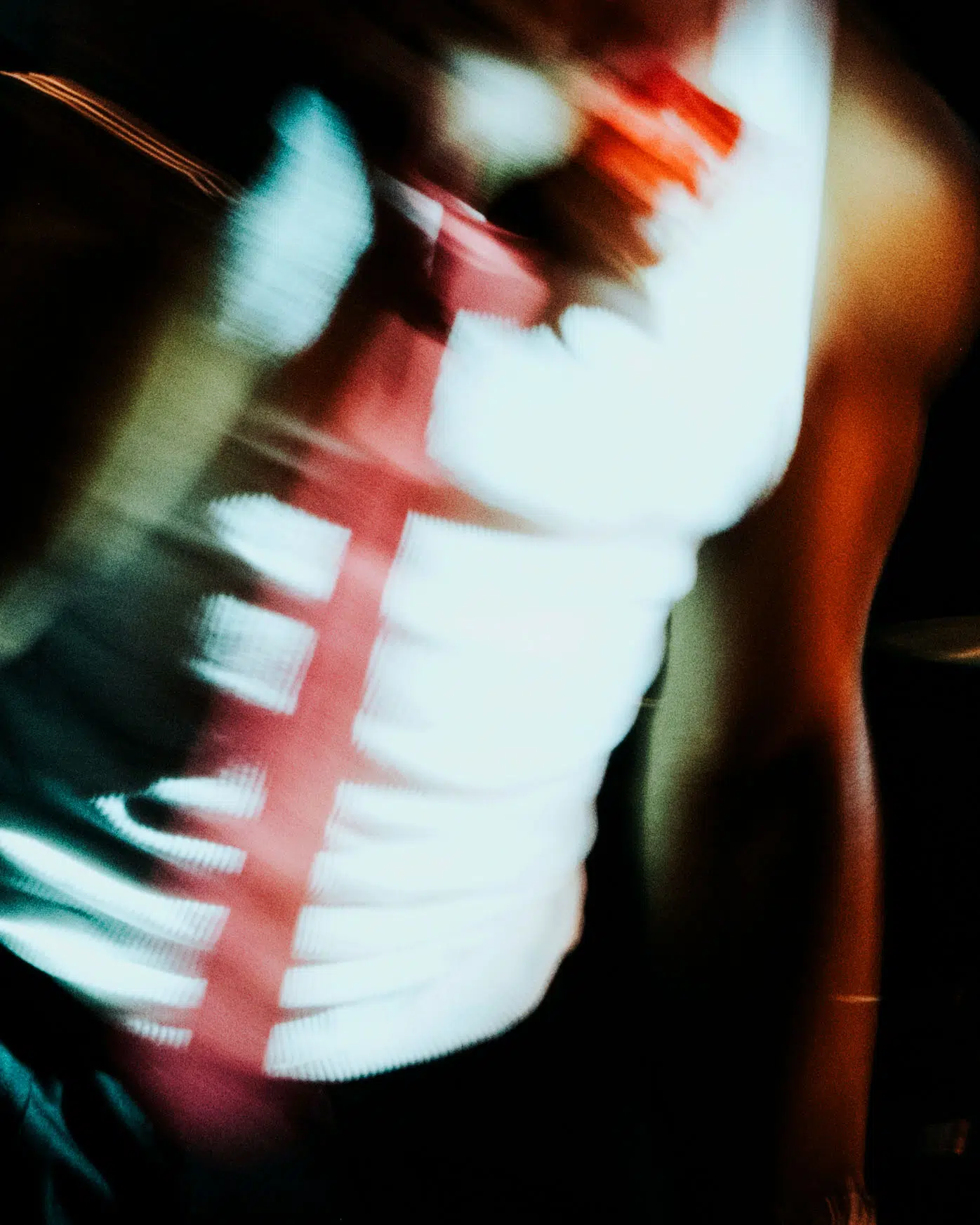
d4vd
How did you get started with touring? Your first tour was with MAX, right?
It was with Max for a couple dates. This was also partly why I ended up in law school. I was graduating undergrad, had gotten into law school, and I made a compromise to my parents. I said, let me try out this photography thing for a year or two. I’ll work at a coffee shop to pay my bills, and I’ll do photography, so I’m going to defer my acceptance. I hadn’t gotten into NYU yet, so the only school that deferred my scholarship was Columbia, so I was going to go to Columbia. I was supposed to head out on my first tour with Max in May 2020. I had done a few short gigs with him, but that was supposed to be a full bus tour, headline run. Obviously, that didn’t happen. The whole world was shutting down. I thought I was going to literally die. I thought, wow, this is a sign from the gods that photography isn’t for me. I literally had no other job options, and I couldn’t just chill for a year, so I took back my deferral. Two weeks before my confirmation day, I got into NYU, which wouldn’t have deferred my scholarship. I preferred to go to NYU because it’d be in downtown New York, and it’d be closer to shows, so I decided to go to law school.
The first tour I ever did for real was a couple of days with Max when he was back on the East Coast in fall 2021. I got on that tour because Max is a really special human to me. I met him on an editorial shoot, he loved the pictures, and we stayed in touch. He started inviting me to a bunch of BTS things and hiring me for all his LA gigs. He was the first person who really took a big chance on me and brought me into his life, and now he’s one of my closest friends. I’ve spent the past two Thanksgivings with his family in New York. I’d worked with them pretty consistently for six months before he asked me to go on that full run. That’s usually how a lot of people end up on tours. Once you start touring and you get a tour under your belt, it gives you some rapport where people will cold email you or hire you out of the blue without knowing you. Usually I find that no one wants to take someone on their first tour if they don’t know you at all, which kind of makes sense.
The next tour I did was with Holly for two or three months, and that was a cold email from her manager. Holly and I met on FaceTime and ended up just really getting along, and then they decided to have me for three months. There’s a bunch of different ways to get into touring, but usually it’s people that you know and work with a lot, so they’re really comfortable with you and are willing to bring you on tour.
I feel like touring is one of those things where everyone wants to do it, and then people either really love it and want to keep doing it, or they don’t.
It’s not easy. It’s really tiring. A lot of people can’t sleep on the bus. It can be lonely as a photographer, because you’re usually the only one and you’re kind of separate from everyone else. My schedule is basically flipped from everyone else. Load in starts at noon, and there’s soundcheck, and then they have the show, and then after the show they’re done. My work really starts right after the show. Some huge tours might have other camera people doing socials or video, but usually on tours this size, one person does everything, so it can be really isolating. Touring is one of those things to try. I definitely think everyone should try it if you’re interested, but I also think for your sake, go with someone that you genuinely think you would have a good time with, spending months with, because that can definitely make a difference in your touring experience.
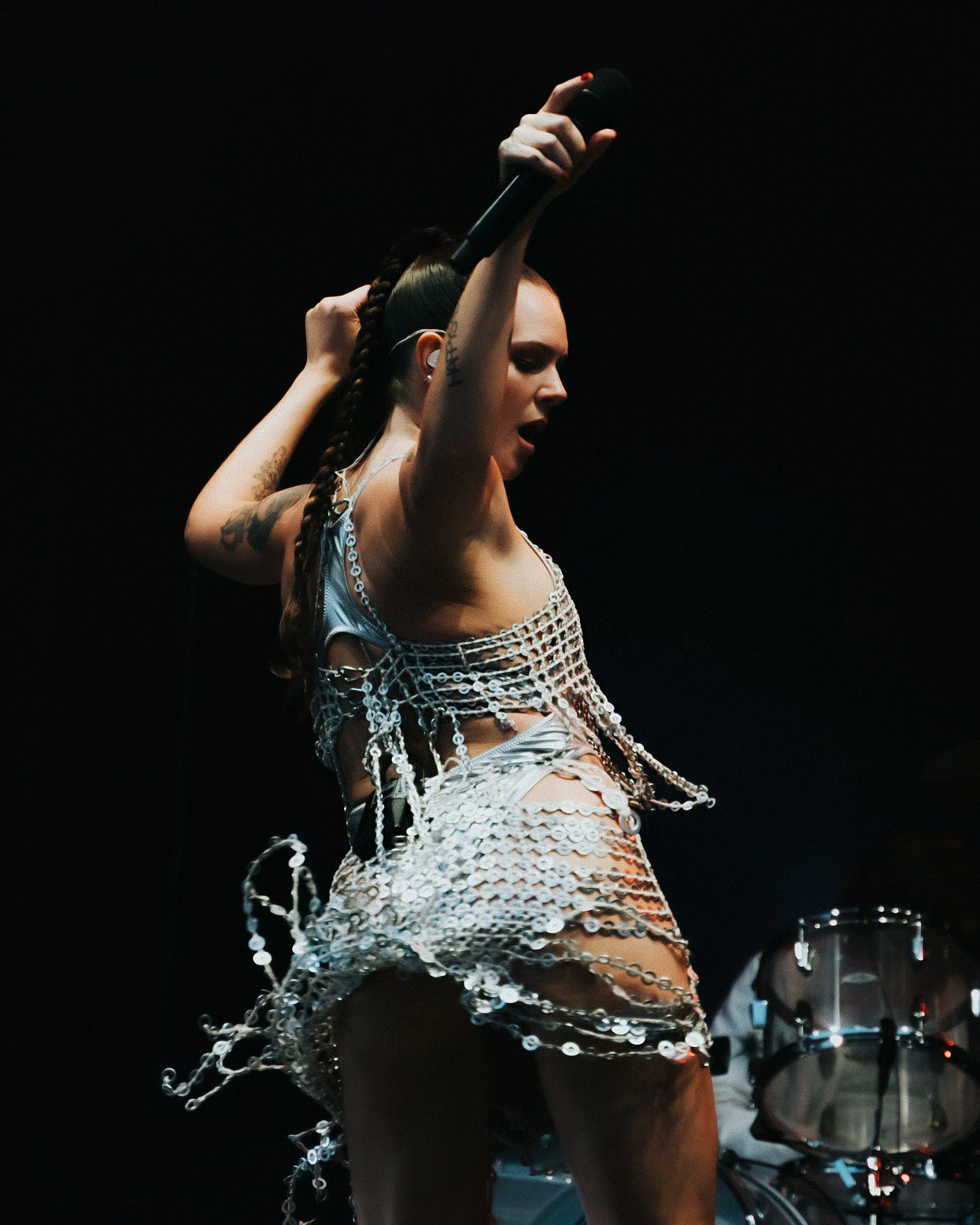
Tove Lo
You graduated from NYU earlier this year, and now you’re on tour. What’s next for you after tour?
I committed to my law job last fall. I got a job offer at the end of the summer for the internship I did last summer. The reason I’m not doing this full four month run with Lawrence is because I have to go start my law job on September 19. I’m going to go to Chicago, and I’m starting at a law firm. I’m going to try it. I’m trying to keep an open mind. I’m hopefully going to keep doing a lot of local gigs in New York, as much as I can. I’m crazy enough to keep doing it, even though law firm hours are notoriously crazy, so we’ll see how it goes. I’m definitely going to try to get back into doing this full time as soon as I can, but I’m doing the practical thing first and trying to set myself up to start on a really solid ground for freelancing. I think this law job is just one necessary step towards that. This is the last thing I’ve promised I would do for my parents, so then after that, I’m thinking I’m going to really try to take a deep dive into this photo thing and see where it takes me. It’ll always be there.
Photography DEANIE CHEN
Words IRENE CHEN
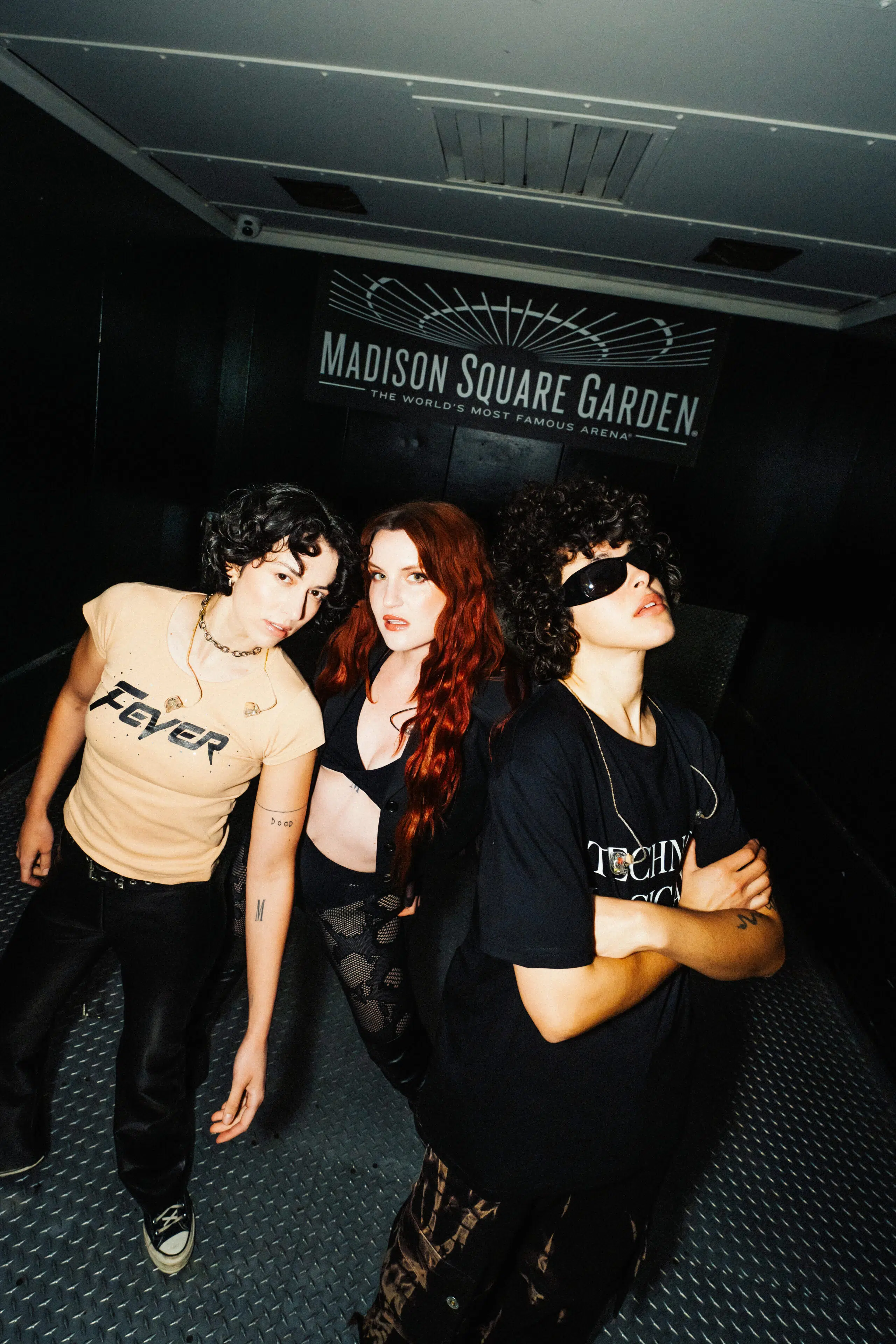
MUNA
You may also like
Leilani Green on becoming a role model
Leilani Green has captured the hearts of millions across multiple social media platforms, sharing ev
Rachael Ransom on unfiltered creativity and creating unity in the disability community
Canadian singer-songwriter Rachael Ransom discusses the unfiltered creation of her debut album, Sixt
Max Ehrich on staying in touch with his emotions
Musician and 4x Emmy nominated actor Max Ehrich discusses how he balances his various creative pursu

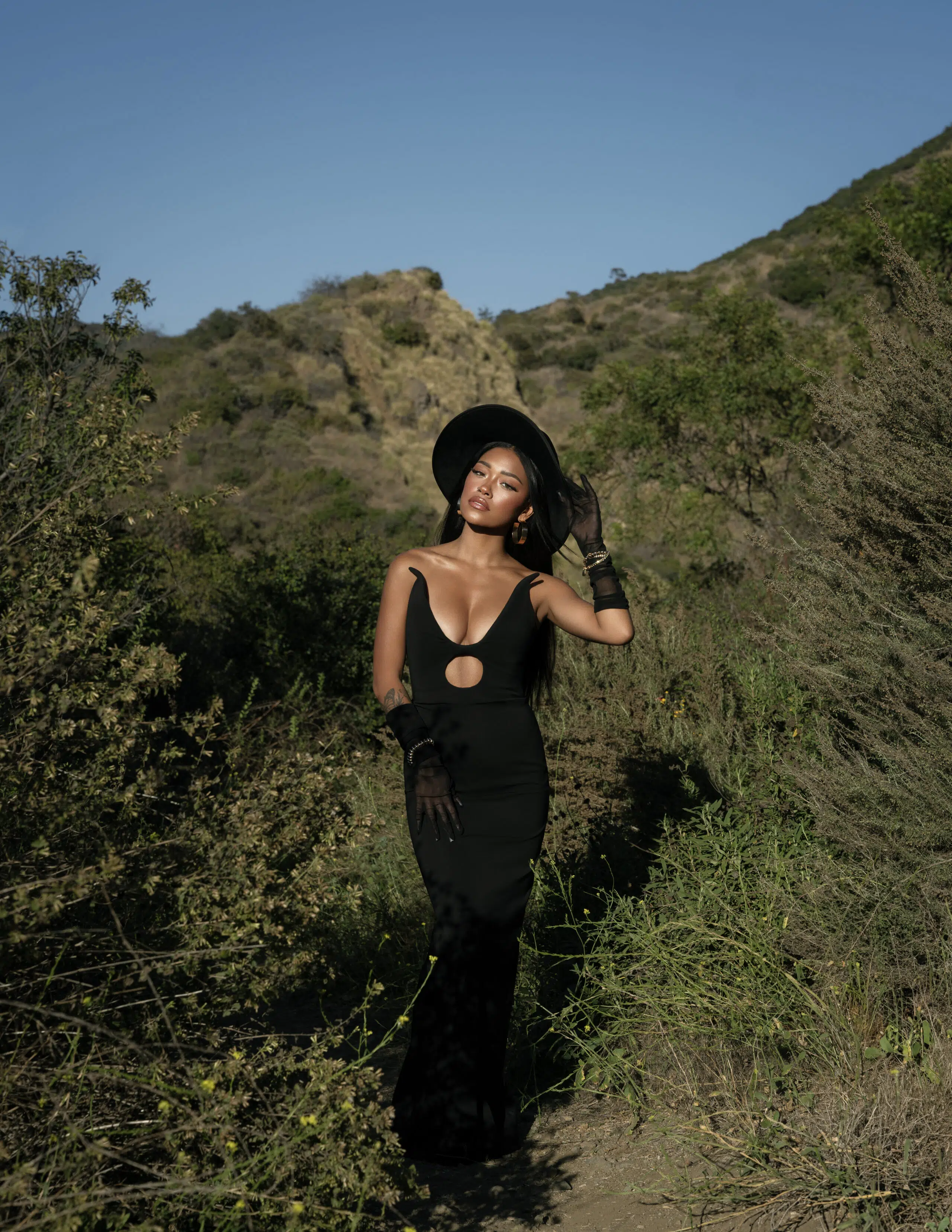
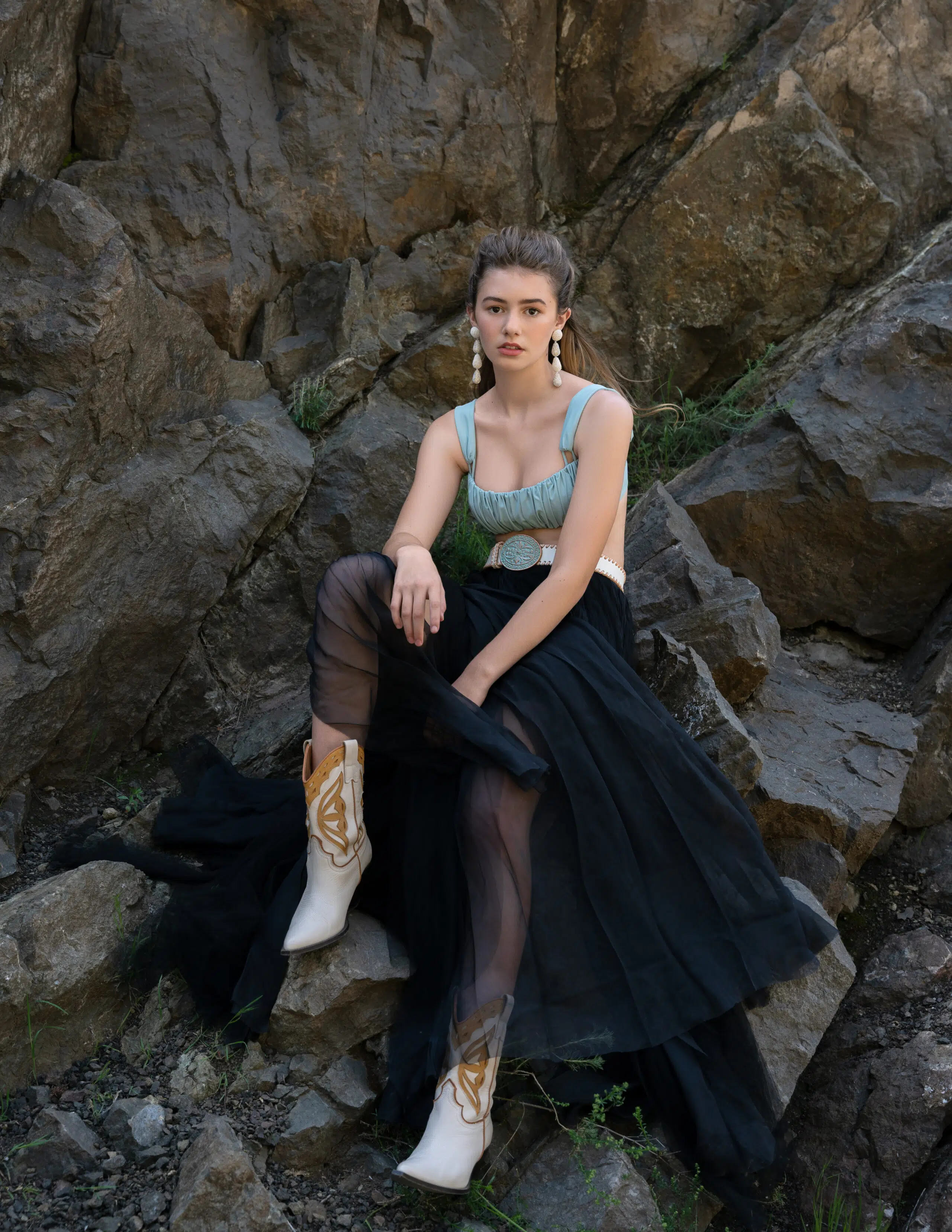
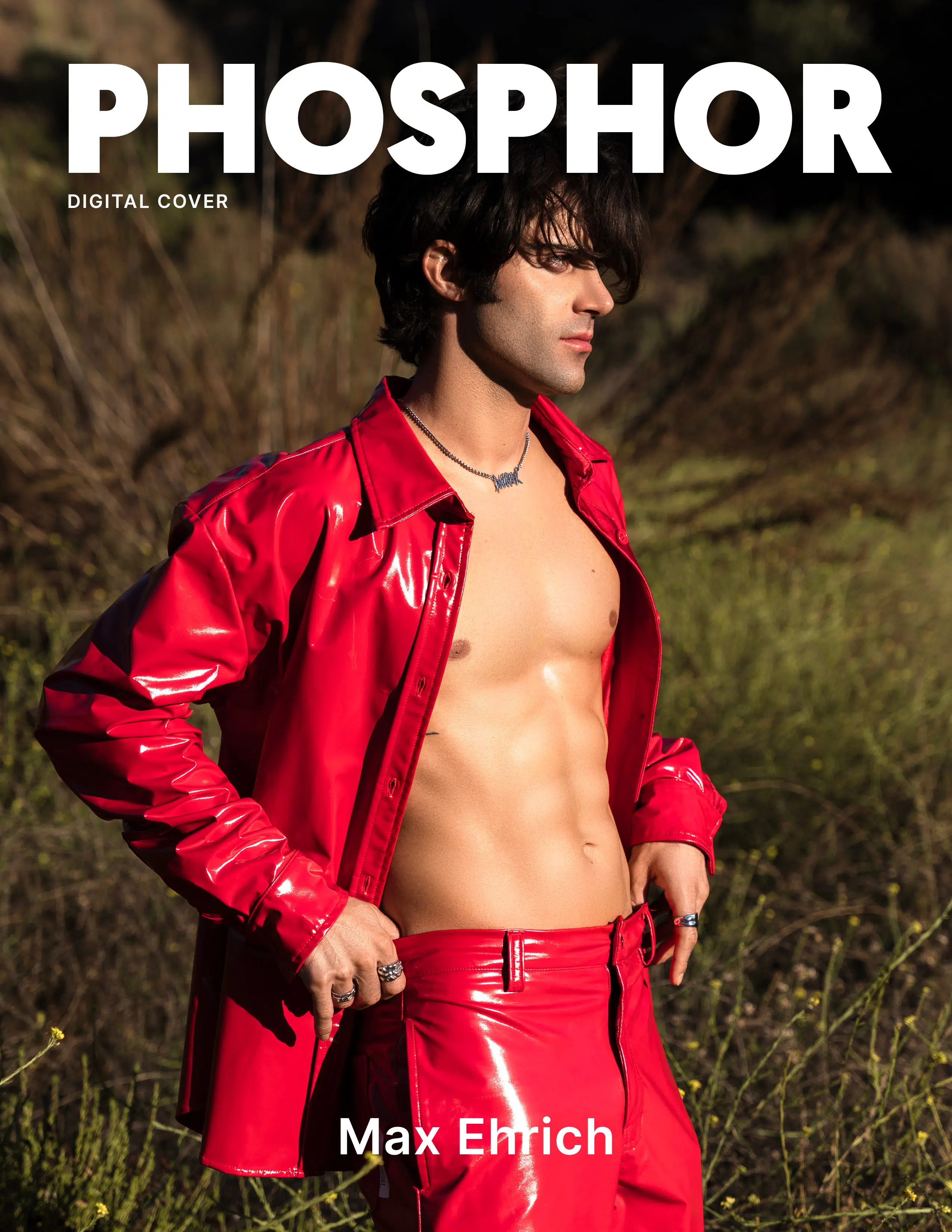



Post a comment